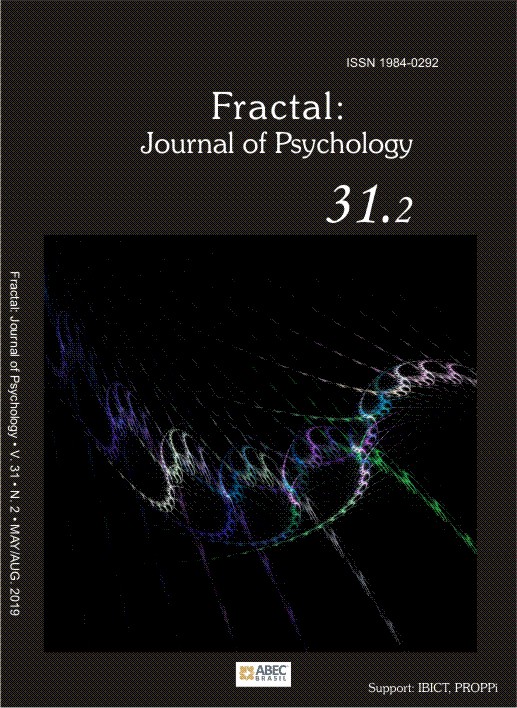Coloniality of knowledge and conflict of memories in the public space
DOI:
https://doi.org/10.22409/1984-0292/v31i_esp/29050Keywords:
collective memory, coloniality of knowledge, coloniality of power, quilombola communitiesAbstract
The coloniality of power and knowledge can transcend the relationship of Europe with the colonized countries, becoming a pattern of relations reproduced in various political systems. Eurocentrism is a non-exclusive cognitive-epistemic perspective of Europeans and neither of the colonial period, also belonging to those who have been educated by their hegemony. This research report aims to approach the conception and organization of a memorial in a quilombola community observing the process of construction of the collective memory around a founding myth of origin. In the methodology followed the qualitative approach using the oral history method. The data were analyzed through the thematic content analysis using Atlas Ti software in the coding, categorization and monitoring of the production of meanings. It is observed that during the construction of Memorial certain dominant social groups use the symbolic, social and political power to make their representation of the past prevail in a Eurocentric epistemological perspective, avoiding the polysemy of voices. The Memorial guide, however, provokes a conflict of memories, based on witness accounts that subvert the historical temporality of slavery, imputing new identity forms to the process of memory construction.Downloads
References
FOUCAULT, Michel. A Arqueologia do saber. Rio de Janeiro: Forense Universitária, 2013.
GILROY, Paulo. O Atlântico Negro: modernidade e dupla consciência. Rio de Janeiro: Editora 34/UCAM – Centro de Estudos Afro-Asiáticos, 2003.
HALBWACHS, Maurice. A memória coletiva. São Paulo: Vértice, 2006.
MARIANI, Alayde Wanderley. Sociologia: Quissamã, história e sociedade. In: MARCHIORI, Emília Prado et al. Quissamã. Rio de Janeiro: SPHAN / Fundação Nacional Pró-Memória, 1987. p. 29-46.
MARTÍN-BARBERO, Jesús. Dos meios às mediações: comunicação, cultura e hegemonia. Rio de Janeiro: UFRJ, 1997.
QUIJANO, Anibal. Colonialidad y Modernidad-Racionalidad. In: BONILLA, Heraclio (Org.). Los conquistados: 1942 y la población indígena de las Américas. Quito: FLACSO, 1992. p. 437-449.
QUIJANO, Anibal. Colonialidad del poder, Eurocentrismo, America Latina. In: LANDER, Edgardo (Ed.). La colonialidad del saber: eurocentrismo y ciências sociales. Perspectivas latino-americanas. Caracas: Clacso, 2000. p. 201-245.
QUIJANO, Anibal. Colonialidade do poder e classificação social. In: SANTOS, Boaventura de Sousa; MENESES, Maria Paula. (Org.). Epistemologias do sul. Coimbra: Almedina, 2010. p. 73-116.
RESTREPO, Eduardo; ROJAS, Axel. Inflexión decolonial: fuentes, conceptos y cuestionamientos. Colômbia: Editorial Universidad del Cauca, 2010.
RICOEUR, Paul. A memória, a história, o esquecimento. Campinas: Unicamp, 2007.
SÁ, Celso Pereira de. Sobre o campo de estudo da memória social: uma perspectiva psicossocial. Psicologia: Reflexão e Crítica, Porto Alegre, v. 20, n. 2, p. 290-295, 2007. http://dx.doi.org/10.1590/S0102-79722007000200015
SARLO, Beatriz. Tempo passado: cultura da memória e guinada subjetiva. Belo Horizonte: Cia das Letras/UFMG, 2007.
SILVA Leonardo de Vasconcelos. Machadinha: origem, história e influências. Rio de Janeiro: EDG, 2009.
Downloads
Published
How to Cite
Issue
Section
License
Authors publishing in this journal agree to the following terms:
- Authors retain copyright and grant the journal the right of first publication, with the work simultaneously licensed under the Creative Commons Attribution License allowing sharing of the work with acknowledgement of authorship of the work and initial publication in this journal.
- Authors are permitted to enter into additional contracts separately for non-exclusive distribution of the version of the work published in this journal (e.g., publishing in an institutional repository or as a book chapter), with acknowledgment of authorship and initial publication in this journal.

This work is licensed under a Creative Commons Attribution 4.0 International License.
To the extent possible under the law, Fractal: Journal of Psychology has waived all copyright and related rights to the Reference Lists in research articles. This work is published in: Brazil.
To the extent possible under law,Fractal: Journal of Psychology has waived all copyright and related or neighboring rights to Reference lists in research articles. This work is published from: Brazil.







